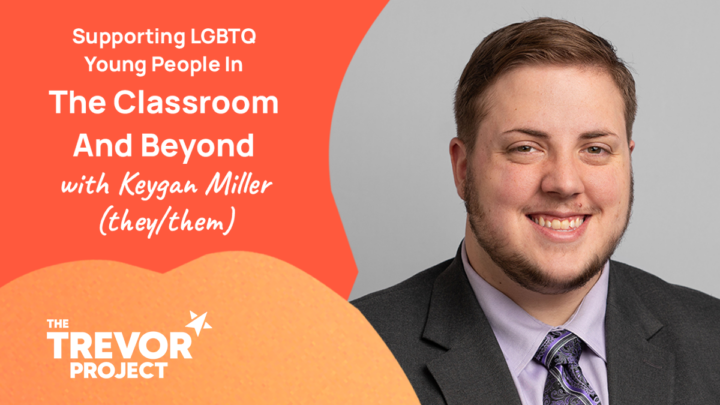Youth's Lives Every Day
There are drag queens, and then there’s Yvie Oddly. The revolutionary drag performer, rapper, and fine artist skyrocketed to fame as the winner of RuPaul’s Drag Race Season 11 and a finalist in All Stars, All Winners. Yvie’s unique and daring style has redefined what drag can be — pushing boundaries and breaking norms with a signature blend of humor, heart, and radical honesty.
Beyond her fierce artistry, Yvie is a dedicated social justice advocate, using her platform to uplift queer, disabled, and BIPOC communities. This Giving Tuesday, December 2, fans can purchase autographed copies of Yvie’s memoir, All About Yvie: Into the Oddity, exclusively at OddlyYvie.com. Following this event, a donation will be made to The Trevor Project, helping provide life-saving resources and crisis support for LGBTQ+ youth across the country.
We caught up with Yvie to talk about writing her first memoir, embracing the intersections that shape her identity, and the message she hopes to send to LGBTQ+ youth who are learning to embrace their oddities.
When people read your memoir All About Yvie: Into the Oddity, what do you hope they take away about who Yvie Oddly really is?
I hope people walk away realizing that Yvie Oddly isn’t a character I invented. It’s the language I use to express everything that makes me me. Jovan’s the person I was born as; Yvie is the technicolor translation of that person’s chaos, pain, and joy. I’m not trying to be perfect or polished. I’m trying to be honest. This book is me saying, “Here’s the messy, weird, stretchy truth.” Because what’s the point of being odd if you’re not real about it?
Writing a memoir is deeply personal and requires revisiting so many parts of your journey. What did you learn about yourself in the process?
That I’m a lot more forgiving of my past than I thought. Writing this book made me go back to all the versions of myself I’d tried to outgrow: the broke teenager sleeping on buses to make drag gigs, the queer kid trying to impress everyone, the artist chasing validation. And instead of cringing, I found compassion. I also realized that I’ve been creating art out of survival for most of my life. This book just happened to be another version of that, minus the hot glue gun burns.
You’ve spoken about being multiracial, queer, and disabled — all parts of your identity that intersect in meaningful and sometimes complex ways. How has embracing all of these layers shaped you into the person you are today?
It’s made me weird, in the best possible way. I used to feel like my body, my race, my queerness were contradictions fighting each other. But over time, I learned they’re actually the ingredients that make me whole. Being multiracial taught me about in-betweenness. Being queer taught me that love doesn’t need a rulebook. And living with Ehlers-Danlos taught me that fragility and strength can live in the same body. So now, instead of hiding the contradictions, I celebrate them, preferably in a rhinestoned bodysuit.
You’re very candid about the physical challenges you experience living with Ehlers-Danlos syndrome. How do you care for your mental health on days when your body is giving you a hard time?
Some days, my body feels like it’s been hit by a drag bus full of glitter and regret. So I let myself rest. I’ve learned that forcing myself to “push through” only breaks me more. Sometimes self-care means Netflix and snacks; sometimes it means letting myself cry; sometimes it means building something ridiculous and beautiful just to feel like I still have control over my art. I also remind myself that my worth isn’t tied to how productive or flexible I am. I mean, I’m literally hyperflexible. Let me have a day off!
You’ve been called the “World’s Oddest Queen.” What words of encouragement would you offer LGBTQ+ young people who feel like they don’t fit in, or who are still finding the courage to live authentically, as you have?
Good. Don’t. Fitting in is overrated. The world needs your oddity. The parts of you that make people raise an eyebrow are usually the same parts that will make someone else feel seen. If you’re still figuring out who you are, give yourself time and patience to grow into your weirdness. There’s no deadline for authenticity. And if anyone tells you you’re “too much,” tell them that’s exactly the point.
Check out All About Yvie: Into the Oddity at OddlyYvie.com


